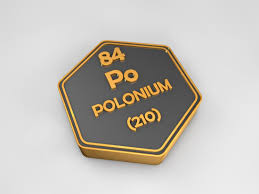
Chapter 1
This is a story of poisoning a former Russian Agent by Spies of Russia on foreign land. The world had witnessed the effects of the most toxic material administered as a poison to kill an individual. This incident leads these countries into a controversial situation.
Alexander Litvinenko was born in a small Russian town of Voronezh near Chechnya on 4th December 1962. After completing his graduation, he got inducted into the Russian army as a platoon commander. Gradually with his skills and efficiency, he rose through the ranks, and was promoted to Federal counterintelligence Service that specialises in counter-terrorist operations in 1991.
In the year 1997, Litvinenko was deployed in the top-secret department of KGB the FSB. He soon discovered that FSB has strong links with Russian Mafia. One of his responsibilities included the elimination of businessman and high-level politicians who were intervening with governance.
Boris Berezovsky was an influential businessman and a government official and a close associate of Russian President Boris Yeltsin. He was deputy secretary of Russian Security Council during the era of Boris Yeltsin.
He was also a friend of Vladimir Putin that later felled apart, and the government took over his assets and other Russian holdings. Berezovsky later moved to the United Kingdom with his family.
There were few assignation attempts on Berezovsky when he was actively involved with the government. This attempt was investigated by Litvinenko and thus bringing both of them together.
Chapter 2
Litvinenko was a lieutenant Colonel at the FSB and had access to secret documents. He observed a high level of corruption of KGB officials and the Russian mafia. He also met with President Putin to enlighten him of the situation.
But there was no impact; rather he was given the responsibility of executing Berezovsky. No explanation of that execution was provided to him, annoying him as he was an old friend of Berezovsky
Litvinenko and three officers of KGB held a press conference and disclosed their findings with the press on 17th November 2020. This annoyed the Russian government, and they arrested him. He was released a few days later but was dismissed from KGB, with the order not to leave the country.
Litvinenko and his family flew to Turkey via Ukraine, in violation of the punishment and later flew to the United Kingdom and sought political asylum in October 2000. He became a British citizen by the name Edwin Carter.
Chapter 3
On 3rd November 2006, an officer came to the Scotland Yard and informed that a man was found lying in a north London hospital bed in a critical condition claiming that he was poisoned.
The police confirmed with the hospital, the doctors said that the admitted person has ulcers in his mouth and was not able to eat or drink. The patient suspected that he was poisoned, with some heavy metal like thallium.
Further investigation revealed that the patient was Alexander Litvinenko living as Edwin Carter in the UK and was a former KGB agent working with MI6 secret service. Gradually he was shifted to ICU of University College Hospital in Central London.
Litvinenko health was deteriorating fast, he had lost all his hair, and there were ulcers in his food pipe rapidly spreading to stomach. The investigators started by recording his statements. He narrated his entire story and gave the phone number of an associate.
The investigators contacted the provided number, and the person along with an MI6 officer reached the hospital and confirmed the patient’s identity. They soon realised that this investigation would be a complex one. The actual investigation was not only complex but also hidden with amazing facts and events.
Chapter 4
The investigation was transferred to the counter-terrorism department. The doctors were not able to identify the poison. They send his blood in the Urine sample of Litvinenko, to the high-security UK atomic establishment for testing. The traces of Polonium 210 isotope was found in his urine sample.

The isotope, Polonium 210 is very radioactive, highly dangerous and a deadly poison. It is 2 million times more toxic than hydrogen cyanide. The report also said that the patient is dead, and could not be saved.
This substance emits alpha radiations within a short distance radiating energy. The consequence of this is that alpha radiations start damaging the tissues if ingested. Because it emits small alpha radiations, it can be carried easily in glass vials, and cannot be detected by radioactive detectors.
Twenty days later, the health of Litvinenko deteriorated, and he was coming in and out of comma. His heart was beating slowly. On 23 Nov 2006 at 9 PM a massive cardiac arrest ended the life of Litvinenko. This was the first time the world heard of a mysterious death by Polonium 210.
The ICU of the hospital was sealed with his body inside after the effect of radioactivity was established. The investigators searched the places Litvinenko visited to detect radioactivity. They also found that Polonium 210 was prepared in a nuclear reactor that is a high-security place and not available to the common man.
Chapter 5
The investigation started with the recorded statement of Litvinenko, he told police that on the 1st of Nov 2006, he met an Italian analyst named Mario Scaramella, he went to a restaurant and sat in a quiet table and had eaten some food.
Investigators sent a team with radioactive detectors to scan the restaurant where Litvinenko met Mario. They got some positive detection, but that was very feeble. They then searched the hotel room Mario was residing. There they could not find any evidence of radioactivity which lead to the belief that Mario was clean.
Investigators were baffled, if Mario was clean, then how the instrument detected positive detection of radiation. They again returned with the radioactivity detecting instrument to the same restaurant and checked the table and chairs. This time they found that the table and chair about two rows back were emitting strong radiation signals.
Investigators were not able to explain this behaviour. However, they continued with the recorded statement, where Litvinenko mentioned, visiting Millennium hotel after meeting with Mario, for meeting two former agents of Russia.
Chapter 6
The first Russian agent was Andrey Lugavoy, a former KGB officer who was a former bodyguard of Russian Prime Minister, and the second agent was Kovtun a Soviet Army Officer. These Russian agents guided Litvinenko to a table that already had a teapot and three cups.
While talking to these agents Litvinenko, poured some tea from the teapot and had three-four sips of the tea. The tea was cold, so he didn’t like tea. The meeting was short, and during the meeting, he further observed that these two other agents didn’t have tea.
Investigators found that Lugavoy and Kovtun, had been staying in a hotel, and the room had a high level of radiation. The radiation level was also observed, in the toilet and the room. The room was subsequently sealed.
They found that both these Russian agents arrived in London on a British Airways flight from Moscow, and stayed in another hotel after verifying their images caught on the CC TV.
They also made a startling discovery that Litvinenko already had a meeting with the same two agents about two weeks before his meeting at the Millennium hotel. This meeting between them took place at the same restaurant Mario had met Litvinenko.
That time they sat at the table that was two rows back. This explained to the investigators that why the table two rows back was emitting radiations and not the table that Litvinenko met with Mario.
Chapter 7
Litvinenko was fortunate that day not to eat or drink any items, as a result, the attempt failed, and both these Russian agents returned to their hotel. After this failed attempt, both Lugavoy and Kovtun flew back to Moscow. Investigators checked the seat of the aircraft where these two agents were seated and could detect the emitting radiation.
The investigators followed this radioactive trail that was left by this deadly toxic material Polonium 210. Andrey Lugavoy flew back alone after nine days determined to make another attempt successful. He stayed in a hotel that was investigated by the radioactive detectors.
The radiation in the toilet was so high that the scientists measuring the radiation had to move out quickly. These lead investigators to believe that Lugavoy had spilled the Polonium 210 in the toilet, and not knowing its consequence tried to flush the substance with water through the drain and wipe out the liquid with a towel.
He checked out of the hotel hurriedly and checked into another hotel nearby subsequently leaving London the next day.The investigators were sure that Litvinenko was poisoned, at the Millennium hotel, and that poison was mixed, in his tea, in the third and the last attempt on his life that proved fatal.
The post-mortem was conducted, on Litvinenko’s body that was lying in the ICU for eight days. Armed with radioactive detectors, they found that the body had a high level of radiation, his tissues and organs were dissolved in the body fluid.
Chapter 8
The autopsy on the body revealed that his death was due to the ingestion of the deadly toxic material polonium 210. After this confirmation, the investigators sent a team of highly trained officers to interview the suspects, Lugavoy and Kovtun in Moscow.
The officers were guided to check on the bobby traps that might have been set up by the Russian secret service in their place of stay or toilets.
On 4th Dec 2020, the investigation team arrived in Moscow and checked into a hotel. The team met the Russian general prosecutor. The Russian side said they are unsure about the whereabouts of Lugavoy and Kovtun.
The British investigators had done their homework, and they told the Russian officer that both the suspects are in nuclear hospital 6. The Russians, however, refused to acknowledge the existence of any such hospital. Nuclear hospital 6 is the place where the patients of Chernobyl disasters were treated.
The Russians later admitted the existence of the hospital, and the investigators were permitted to interview Kovtun. The van that came to pick up the investigators was moving in random directions to confuse them of the exact location of the hospital.
After driving for two hours, the investigation team arrived at the hospital around 9 PM. They were given strict instruction from the Russian authorities that no recording instruments would be permitted, apart from a pen and notebook.
Chapter 9
One investigator was lead to a room, where a person was sitting in a bed, and only his eyes were visible rest of his body was covered up. So it could not be confirmed, that this was indeed Kovtun or somebody else. The interview with this man lasted for just 12 minutes, and investigators were unable to complete the prepared questionnaire.
After about seven agonising days of wait, the Russian authorities permitted the investigators to interview Lugavoy at the same hospital. The investigators were provided with a pen and notebook and searched for the presence of any recording device.
Investigators were informed, that the interview would be conducted in Russian as Lugavoy cannot speak English. They were lead to a room, where Lugavoy was sitting and looking fit and fine, at the end of the interview to everyone’s surprise Lugavoy, said to the team “Good luck with your investigation” in English.
After two weeks of stay, the investigators collected all the recordings and documents that were provided by the Russians and left for London. Upon investigating the documents handed over by the Russians, it was observed that the recording of Lugavoy interview was not provided to the investigators.
The Russian government out-manoeuvred British investigators by not providing the most important piece of evidence.
Chapter 10
A month later, Litvinenko’s body was buried in a lead coffin as it was still radioactive. His family and Boris Berezovsky attended the funeral.
Investigators checked for radioactivity on all the cups and teapots available at the Millennium hotel and detected strong radioactivity on one of the teapot and cup. They build up a strong case against the suspects, and the court finally passed the order of extradition of Lugavoy to London on the charge of a murdering a British citizen on British soil.
Lugavoy and Kovtun denied any charges in the Russian media and announced, that the story was concocted story by the British to malign their reputation. Later Lugavoy became a member of Russian parliament that provided him immunity against any prosecution.
Eight long years after the demise of Litvinenko, the Royal court of justice in London passed the judgement that he was killed by poisoning by Lugavoy, under the orders from Mr Petruchev then the head of Russian FSB and by President Putin.
Finally, a victory for the family of Alexander Litvinenko, for fighting a hard battle against the odds and to the investigation team that gathered the necessary evidence to build up a strong case against the Russian authorities.




 (3 votes, average: 5.00 out of 5)
(3 votes, average: 5.00 out of 5)


